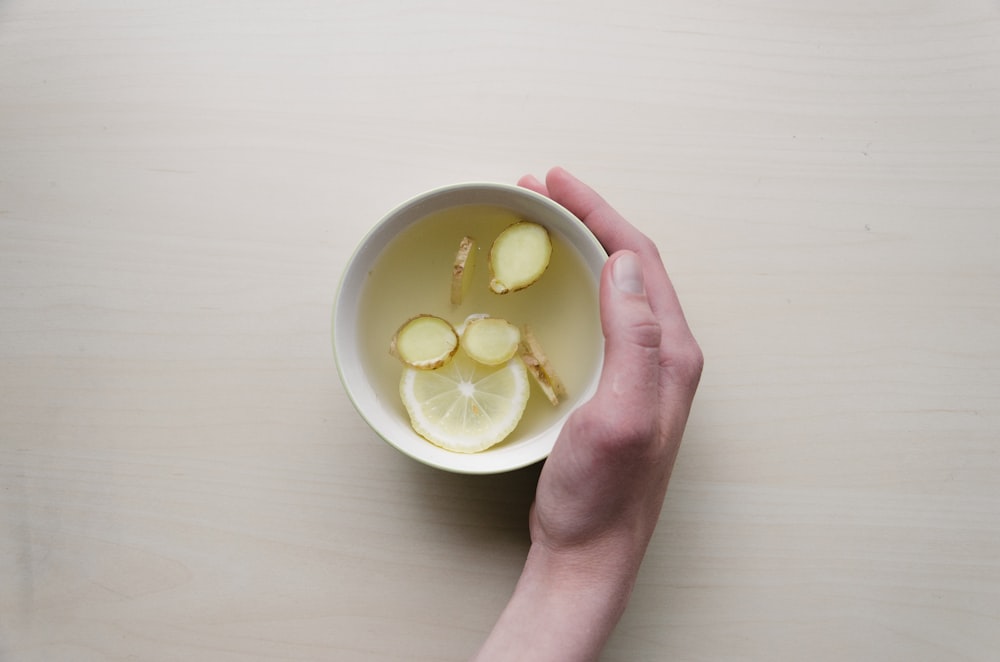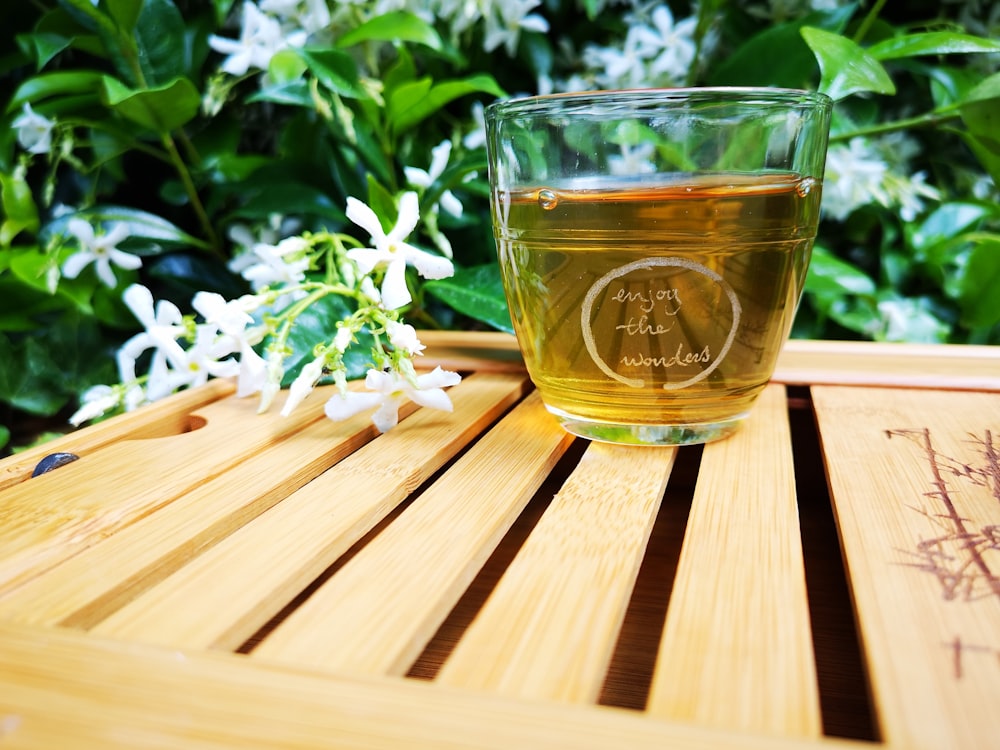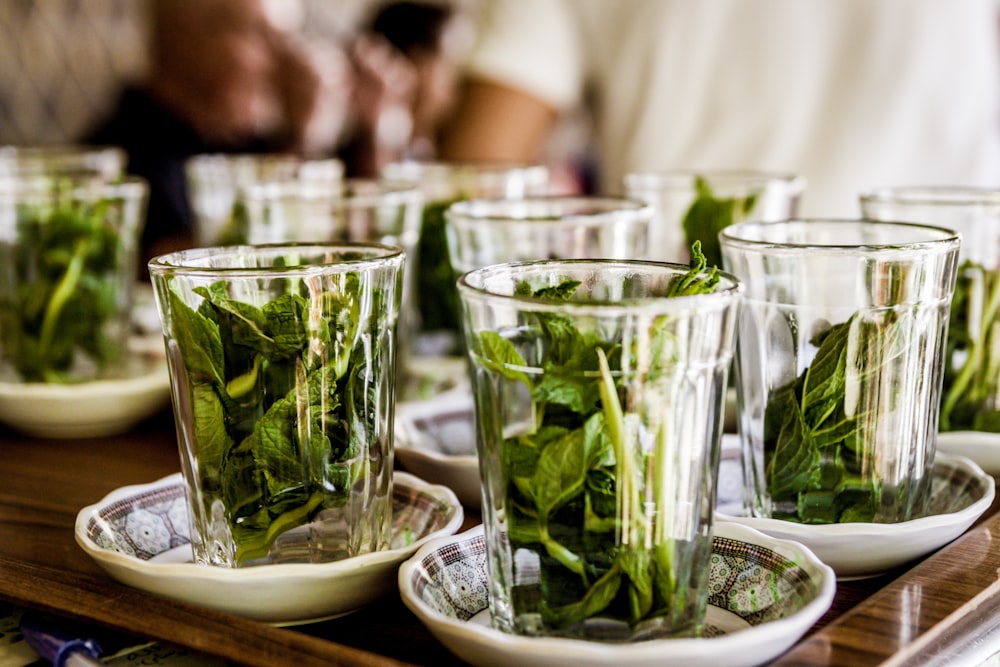10 Teas for Immunity and Longevity

Green tea
Green tea is hands down, the most popular tea for health and longevity. Its health benefits are vast. And it’s pleasing to most palettes. Plus, there are so many varieties to choose from. Don’t think you like green tea? Think again. Maybe you’ve just not tried the kind that’s right for you. The many tasty varieties of green tea are incredibly ripe with antioxidants, which helps fight off infections and other harmful substances. These antioxidants protect your cells and boost their overall function. Green tea has even been used as a weight loss tool. Want to burn fat? Many studies show how effective green tea is as a fat burner because of its ability to boost metabolism.
It’s also believed to boost cognitive function. Green tea’s caffeine content, as well as its l-theanine content is responsible for its brain boosting effects. Green tea’s polyphenols are said to help prevent cancer and prevent a myriad of diseases, and the wide range of antioxidants found in green tea has been shown by many scientific studies to decrease your risk of getting breast cancer, prostate cancer, and colorectal cancer. What’s more, these antioxidants help reduce chronic inflammation, which also reduces the risk of heart disease.
There’s an antioxidant in green tea known as a catechin. It’s one of the most beloved antioxidants of the green tea family because it has been known to help do the following:
- Clear up skin for a beautiful complexion
- Stabilize blood sugar, thereby helping prevent the adverse effects of diabetes
- Decrease inflammation
- Increase antioxidant activity
- Improve the function of the brain
- Slow the aging process
Last but not least, take it from the Japanese. They’re one of the longest lived groups of people on the planet. And what’s their go-to beverage? Green tea, of course!
And if you really can’t stomach the taste of green tea, there’s always green tea extract you can take as a supplement. I like to sip 2-3 cups of organic green tea each day, especially in the winter. When the temperatures rise, simply buy the cold version, and have it over ice. Green tea is a truly versatile longevity drink!
Ginger tea
Most of us don’t eat enough ginger. Luckily, we can drink it. In tea form, it’s the perfect winter beverage. Drinking ginger tea is a definite longevity booster, and its health benefits cannot be denied. Ginger tea is ideal when you’re ready to take a break from caffeine. It’s an herbal elixir, and one that works as anti-inflammatory, helping to combat diseases of inflammation. But, perhaps ginger’s most well-known benefit has to do with its powers to support a healthy digestive system. Gastrointestinal discomforts of every kind are often remedied by ginger root. Nausea, upset stomach, diarrhea—these are maladies that benefit from ginger.
Ginger has also been known to help fight infections. Many studies have shown how ginger fights various viruses and bacterial infections. This study, published in the Journal of Ethnopharmacology suggests that drinking ginger tea on a regular basis helps combat the RSV virus.
Yet another boon of ginger has to do with its innate healing powers to help alleviate joint and muscle pain. Studies like this one, published in The Journal of Pain, studied a group of people with muscle injuries. They took two grams of ginger each day, and after a mere eleven days, said their pain was significantly less of a problem. What’s more, if you suffer from knee pain related to osteoarthritis, consuming ginger may also be a good idea. Another study, this one published in Arthritis and Rheumatism, makes a good case for regular ginger consumption, and a decrease in knee pain.
For all these reasons (and more), I say ginger tea is one of the healthiest drinks to keep you warm and promote well being throughout the winter months ahead. It will also keep you healthy as you age. I also love it in holy basil (tulsi) tea. Turmeric, ginger, and tulsi is an amazing combo.

Earl Grey
I never knew how healthy black tea could be. Earl Grey is a black tea with the added benefit of bergamot. Ever heard of intermittent fasting? Many people do it for weight loss and longevity. Earl grey tea with bergamot happens to be really effective if you practice intermittent fasting. Why? Because it promotes something known as autophagy. This is a process that happens during intermittent fasting. Basically, the body gets rid of unhealthy cells to make way for new and improved cells. If you decide intermittent fasting is good for you, Earl Grey tea with bergamot will make the healing process that comes with intermittent fasting that much more effective.
This process of cell regeneration bodes very well for longevity, which makes Earl Grey tea a top pick if you want to live a long and healthy life. Plus, it’s really tasty. Bergamot has a lovely citrus flavor that gives black tea an extra kick. It’s both soothing and energizing. I encourage you to substitute coffee with Earl Grey some mornings to see how you like it.
Oregano, sage, and rosemary tea
These herbs make a great longevity tea. They’ve been used around the world for centuries, and the health benefits that come from each herb are really something. You can cook with these herbs, for sure. But, making a warming tea from these three creates a potent health elixir that I plan to sip on throughout the colder months.
Oregano is known to help reduce chronic inflammation. It also reduces the oxidative stress on our cells that happens each day simply by living. Rosemary has healing antimicrobial powers, while sage has a myriad of health benefits, including the ability to lower high blood sugar. But, the thing with herbs is that they need to be consumed every day. This is where their long-lasting benefits come into play. The positive health effects build up slowly, and over time. Herbs are not the quick fix. But, they are a sustainable one, which is what longevity is all about!
Pine needle tea
Now, this is a tea you’ve probably never had in your life. And you may have never known it even existed. But, it does. And it’s great for bolstering the immune system, something we’re all wanting to do these days. So, what exactly is pine needle tea? Well, pine needle comes from the bark of the pine tree. The pine tree contains a substance called pycnogenol, and it has healing properties that run the gamut. Its most well known health benefit has to do with alleviating oxidative stress while boosting immune function.
That said, drinking pine needle tea is a great way to reap the many benefits of pycnogenol. If you feel a cold coming on, you’ll want to start sipping pine needle tea ASAP. In fact, this study, published in Panminerva Medica, showed how drinking pine needle tea decreases the duration of a winter cold.
You can buy already made pine needle tea. Or, you can make it yourself. Simply go to your local park, and pick pine needles directly from the tree. Gather your pine needles and bring them home. Rinse your needles to get rid of any debris. Heat some water in a pan and bring the water to a boil. Soak the pine needles in the boiling water and steep them until you can smell their oils being released. The aroma will be fragrant and full of Christmas charm. I like to add honey to my teas, and this one goes well with it. So, if you need to sweeten the tea up a bit to better please your palette, simply add a teaspoon of local honey and enjoy the warm, winter treat.
Echinacea tea
Echinacea, which comes from the purple cornflower, has long been used as an herbal remedy for colds and flus. While you can take it in supplement form, I like to sip it as an herbal tea. Studies like this one, published in Phytomedicine, suggest just how effective echinacea is as an immune booster. Other studies have found that sipping echinacea tea reduces the duration of colds. It’s also possible that echinacea works to boost the immune system. As such, this herbal remedy is a good bet for the winter.
Elderberry tea
Elderberry was one of Hippocrates' favorites. This native European purple berry is well-loved across the globe for its ability to fight viruses. Elderberry has both antibacterial and antiviral properties. This makes it a potent herbal elixir to ward off colds and flus, while also boosting immune health. If you’d rather not drink this particular natural remedy, you can take it in the form of elderberry syrup, which makes it sweet and every bit as effective.
Slippery Elm tea
Ever had slippery elm tea? It’s not as popular as many on this list, but it’s every bit as effective. Slippery elm tea offers up a host of benefits and provides relief for sore throat, and even laryngitis. If you have a cough, sipping slippery elm tea has been known to help. This herbal remedy is actually an ingredient in many cough drops. When combined with water, in tea form, slippery elm forms something known as mucilage, which coats your throat to offer up relief from a sore throat. It’s the many healthy compounds found in slippery elm which makes it such a potent natural remedy. Vitamin E, calcium, tannins, and bioflavonoids all comprise this herb to make it an effective tea for immunity and longevity.
Peppermint tea
Peppermint is my go-to year round tea. Maybe because I’ve always been prone to feeling like my nose is stuffed up. Peppermint naturally helps relieve congestion. It’s incredibly uplifting and soothing to the sinuses. Whenever I sip a really strong peppermint tea, I can instantly breathe better. What is it that makes peppermint so effective in clearing the sinuses? Just like those cough drops we buy from the drugstore, it’s the menthol. In peppermint however, the menthol is naturally occurring, which makes it a healthier remedy than a man-made cough drop. When shopping for a peppermint tea, choose organic when you can. You can also buy loose leaf organic peppermint to brew yourself. And in the summer months, drink it cold. This is a truly versatile elixir.
Honey Lemon tea
Honey lemon tea has alway been my most simple go-to tea when I feel a cold or flu coming on. Not only does it taste really good, it’s also good for you. Lemon contains immune boosting vitamin C, and honey is inherently beneficial for your immune system. This simple tea is easy to make at home, and it’s pleasing to kids’ palettes as well—a perfect immunity tea for the whole family.
Pu-erh tea
Pu-erh tea comes in three different varieties—white, black, and green. Hailing from the Yunnan province in China, this medicinal tea is known to fight off harmful bacteria. Studies like this one prove its antibacterial benefits. Because this tea comes in white, black, or green varieties, you can pick your flavor!
As you can see, sipping these teas can really elevate your lifestyle during the cold, dark, winter months. It’s something I find myself naturally doing as the temperatures drop and that urge to hibernate kicks in. Sip these teas by the fire, while working on your computer, or reading a book with candlelight. What a relaxing and pleasurable way to stay healthy this winter!



